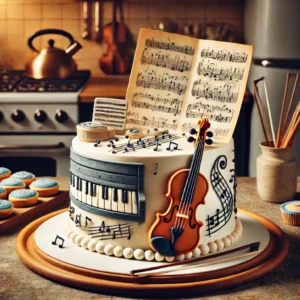Imagine you are preparing a cake. You collect each ingredient according to the recipe, apply yourself diligently, and follow the instructions carefully. When you finally taste it, however, it’s not quite how you wanted it. You may still be happy with it or want to make it better, so you start wondering where you went wrong.

The Cake Analogy: A Recipe for Learning
The mistake may have happened in specific actions you took or in their order. Maybe something was overlooked during the process, an ingredient was too abundant, or perhaps entirely missing. You need to look at details as much as at the entire process.
The more you examine, the more perspectives emerge. You start considering the tools you used, the precision in timings and proportions, and the specific quality of each ingredient. Focusing on the taste will help you identify where the problem is. Answers start to appear, and you take mental or written notes for improvements next time.
Acknowledging the Full Process
To make the cake exactly the way you wish, you need to acknowledge every little thing, each necessary action, ingredient, or tool, and consider them with more attention than you thought. More than that, you might realize that some problems, like an old oven or unreliable recipes, will be hard to fix quickly.
Taste as the Guiding Force
Whatever you decide to do about your cake, let’s consider this simple experience: it has an origin, a motivating element that drives you to engage in creative activities like cooking. The engine of the entire process that makes it all worthwhile is your taste. Your taste reveals that your efforts did not provide the result you wanted and guides you in identifying mistakes.
Repetition as a Path to Improvement
Now, imagine you are preparing the same cake every day. How much easier would it be to discover what goes wrong each time? Through daily repetition, your attention to detail is enhanced. Your sensitivity to flavors, knowledge of ingredients, and ability to choose the best ones increase. This is practice.
Taste as a Teacher in Music
Your taste is the best teacher that ever existed in both culinary art and music! It tells you what music you like to play and how to play it—or how not to. It does this constantly, every time you sit at the instrument. Like with baking, your musical taste points out problems but doesn’t always suggest solutions.
Solving Musical Problems Through Patience
In music, there are often too many problems to consider at once—tone, fluency, dynamics, phrasing, coordination, etc. It’s hard to find a solution that fixes everything at once. Patience and resilience are required, approaching one issue at a time. Just as you would with baking, learn about each ingredient—in music, this translates to understanding each element of your playing.
Embrace the Journey
The process or the journey allows for improvements more than ready answers. Good teachers guide you on what’s important but the actual practice process is in your hands. And it should be—after all, you’ll own every bit of success when you finish!
Refining Your Musical Taste
Good musicians, including your teacher, have learned by excluding the wrong ways and gradually refining their practice. With patience, experience will guide you towards better outcomes.
In the end, your taste will become your best teacher. It will not only point out mistakes but also guide you towards improvement. Our goal is to refine your musical taste to the point where it provides options for how to make it better.
